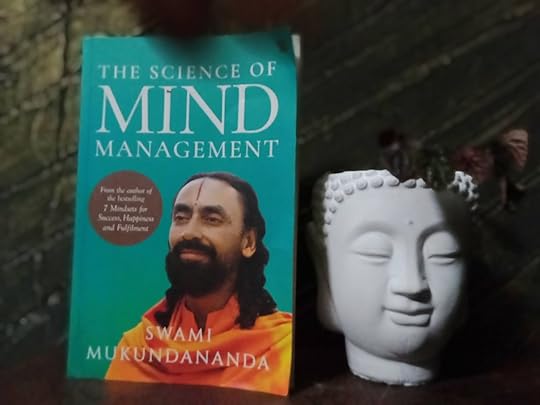The Science Of Mind Management By Swami Mukundananda

A self-help book by a Hindu saint. The first thought that comes to the mind of the readers would be that of a book that is all about religious scriptures and teachings. The Science of Mind Management is not in that category. So, Which category does the book belong to?
The religious Science of Mind Management:Citing the placebo effect and remembered wellness, the author has put forth his ideology with conviction. The author has also given examples of Hellen Keller, Buddha, Dr. Wolf, Mahatma Gandhi, and many such personalities that are from different religious beliefs. The author indeed quotes the scriptures from Mahabharata, Upanishads, and several other religious scriptures but he substantiates them with practical examples. For Instance,
'uddhared atmanatmanam natmanam avasadayet
atmaiva hyatmano bandhur atmaiva ripur atmanah
'Elevate yourself through the power of your mind, and not degrade yourself, for the mind can be the greatest assistant of the self, and also its vilest enemy'
This verse from Bhagavat Gita is the crux of every self-help book ever. The author has not used any religious overture to substantiate this. The author has explained everything with an example that the masses in the materialistic world can relate to. He says that "thoughts are subtle bundles of energy created in the factory of mind"

God, Spirituality, and Philosophy in our daily lives:
It's not that there is no mention of God. The author states that Vedas are infallible and trustworthy sources of knowledge and they refer to eternal knowledge of God. The author tells us how our mind, intellect, subconscious mind, and ego become the four key levels of functioning of the mind. The logic behind the idol worship is clearly illustrated by Swami in an undeniable style.
In short, the book is a different approach to religious scriptures but bringing forth the spiritual and philosophical aspects. The author's knowledge about the materialistic world is commendable. It is a book by a Swami, who states the verses from Bhagawat Gita, Upanishads, Ramayan, etc, and talks about God but still comes out as a secular piece of literature.

Special mention to the quirky anecdotes by the author, which would leave us thinking, "Oh! No, this is me."
The bottom line is that I love this book. I want to read it once more. But you might not love it if you approach it with prejudice. It is not a simple read. You need to have a real interest in this topic.




